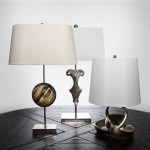Interior Concrete Sealer: Protecting and Enhancing Your Concrete Surfaces
Concrete is a versatile and durable material commonly used for floors, walls, and countertops in both residential and commercial settings. While its robustness is undeniable, concrete can be susceptible to stains, moisture damage, and wear and tear over time. An interior concrete sealer acts as a protective barrier, safeguarding your concrete surfaces from these elements and enhancing their appearance.
Interior concrete sealers are formulated to penetrate the concrete pores, forming a protective layer that prevents stains, moisture absorption, and dust accumulation. They also offer a range of benefits for both functionality and aesthetics, making them a valuable investment for any concrete surface.
Key Benefits of Interior Concrete Sealer
1. Stain Resistance
One of the most significant advantages of an interior concrete sealer is its ability to resist stains. Spills, dirt, and other contaminants can easily penetrate untreated concrete, leaving unsightly marks. A sealer forms a barrier that prevents these substances from reaching the concrete, making it easier to clean and protecting its pristine appearance.
2. Moisture Protection
Concrete is porous, meaning it absorbs moisture. This can lead to problems such as mold growth, warping, and deterioration. An interior concrete sealer fills the pores, creating a waterproof layer that repels moisture and prevents damage. This is particularly important in areas prone to spills, humidity, or frequent cleaning.
3. Durability and Longevity
Interior concrete sealers enhance the durability and longevity of your concrete surfaces. By protecting them from abrasion, wear and tear, and chemical damage, a sealer can extend their lifespan and prevent costly repairs or replacements. This is especially beneficial for high-traffic areas like hallways, kitchens, and bathrooms.
Types of Interior Concrete Sealers
There are various types of interior concrete sealers available, each with unique properties and applications. Understanding the different types can help you choose the ideal sealer for your specific needs.
1. Penetrating Sealers
Penetrating sealers are designed to soak into the concrete, forming a bond within its pores. They offer excellent stain resistance and moisture protection without changing the appearance of the concrete. Penetrating sealers are ideal for floors, walls, and countertops where a natural finish is desired.
2. Topical Sealers
Topical sealers create a protective film on the surface of the concrete. They offer a higher level of protection against stains, moisture, and abrasion, and can also add a sheen or color to the concrete. Topical sealers are suitable for high-traffic areas or surfaces that require a more durable and aesthetically appealing finish.
3. Epoxy Sealers
Epoxy sealers are a type of topical sealer known for their exceptional durability and resistance to chemicals. They are often used in industrial and commercial settings where concrete surfaces face heavy wear and tear. Epoxy sealers can be applied to floors, walls, and countertops, providing a long-lasting and protective barrier.
4. Acrylic Sealers
Acrylic sealers are water-based and offer good stain and moisture resistance. They are typically used in residential settings and are available in a range of finishes, including matte, satin, and gloss. Acrylic sealers are generally easy to apply and offer a good balance of protection and aesthetic appeal.
Choosing the Right Interior Concrete Sealer
When choosing an interior concrete sealer, consider factors such as the type of concrete surface, the level of protection required, and the desired aesthetic. Here are some helpful tips:
•
Surface Type:
Different sealers are better suited for specific types of concrete, such as polished concrete, exposed aggregate concrete, or stained concrete.•
Traffic Level:
High-traffic areas require a more durable sealer than low-traffic areas.•
Finish:
Consider the desired finish, whether it's natural, glossy, or matte.•
Application:
Some sealers are easier to apply than others, so choose a sealer that suits your skill level and available resources.By carefully considering these factors, you can select the ideal interior concrete sealer to protect and enhance your concrete surfaces for years to come.

Alternative Finishes For Interior Concrete Floors Decor

Colored Concrete Sealer How To Guide

Excel With The Right Clear Sealer For Interior Concrete

Best Indoor Concrete Sealers

Alternative Finishes For Interior Concrete Floors Decor

Clear Concrete Sealer How To Choose The Best Type For Your Project

Understanding The Types Of Concrete Sealers Colour Systems

Interior Concrete Stain Colors Direct

Why Concrete Sealers May Leave A Lingering Odor Decor

Interior Concrete Floor Sealer Prosoco Polishguard








